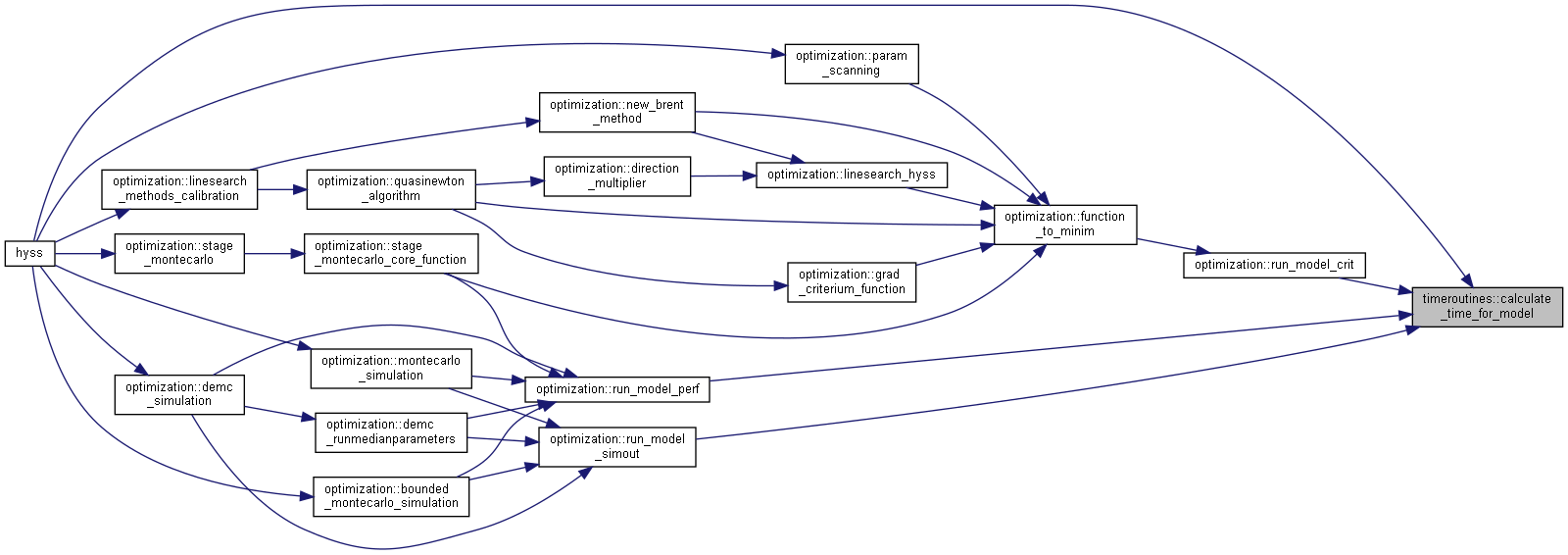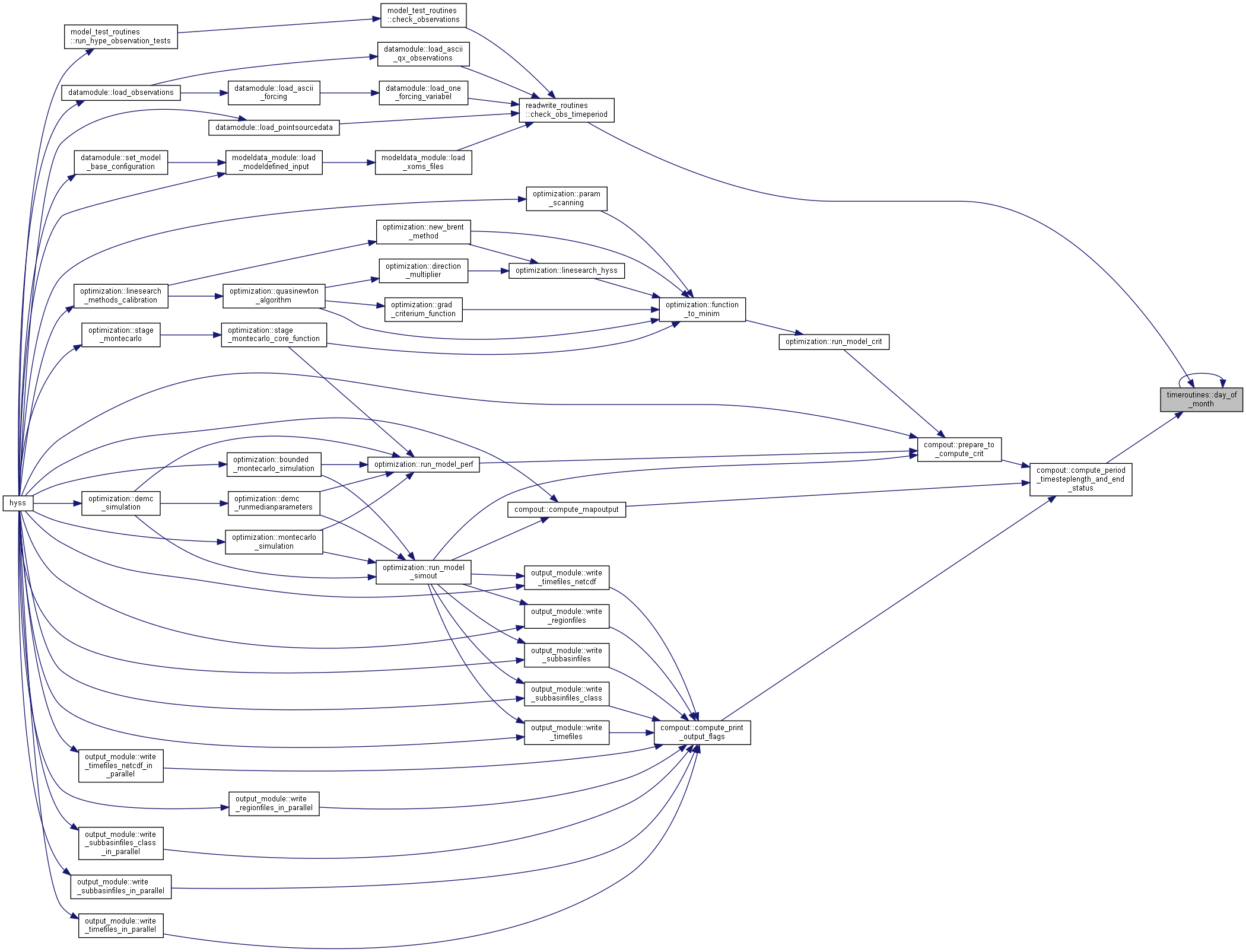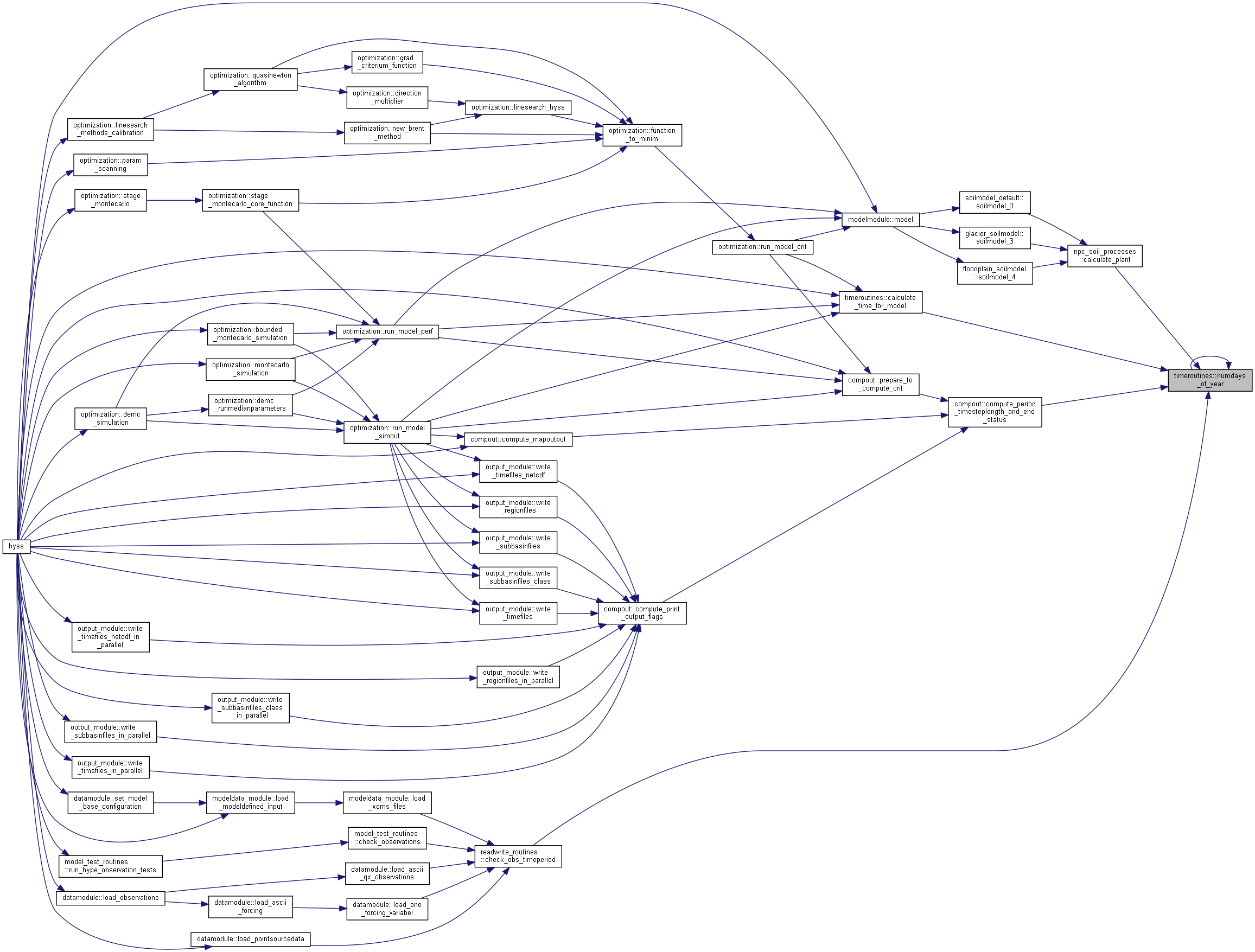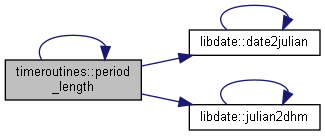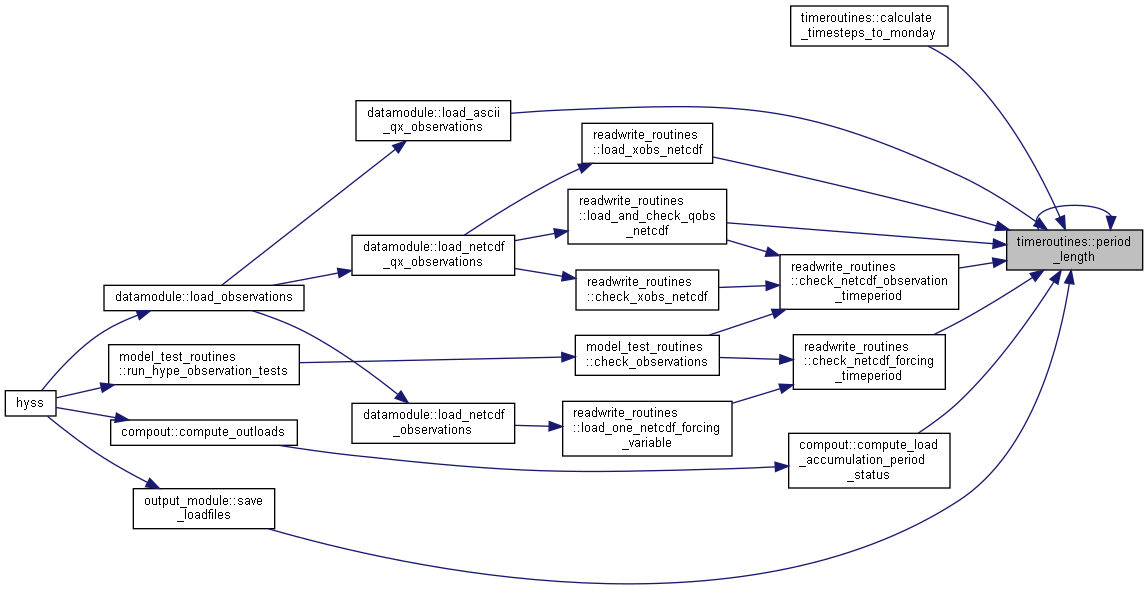Functions/Subroutines | |
| integer function, public | period_length (sdate, edate) |
| integer function, public | day_of_month (year, month) |
| integer function, public | numdays_of_year (date) |
| subroutine, public | calculate_time_for_model (idt, date) |
| subroutine, public | set_timestep_variables (tstep, stepunit, fdate) |
| subroutine, public | calculate_timesteps_to_monday (fdate, tstep) |
| subroutine, public | get_dayno_from_monthday (dateIn, daysAmount) |
| subroutine, public | add_date_to_array (onedate, dim, n, datearray) |
| subroutine, public | check_if_date_in_period (dim, n, datearray, begindate, enddate, status) |
Variables | |
| integer, parameter | float = KIND(1.0) |
Detailed Description
Module contains procedures relating to time calculations.
Function/Subroutine Documentation
◆ add_date_to_array()
| subroutine, public timeroutines::add_date_to_array | ( | type(datetype), intent(in) | onedate, |
| integer, intent(in) | dim, | ||
| integer, intent(inout) | n, | ||
| type(datetype), dimension(dim), intent(inout) | datearray | ||
| ) |
Add new date to date-array in order. Already existing dates are not added.
- Parameters
-
[in] onedate date to be added [in] dim size of array [in,out] n number of dates in array [in,out] datearray array of dates
◆ calculate_time_for_model()
| subroutine, public timeroutines::calculate_time_for_model | ( | integer, intent(in) | idt, |
| type(datetype), intent(in) | date | ||
| ) |
Calculates the time variables available for the model.
Consequences Module modvar variables current_time is set.
- Parameters
-
[in] idt index of current timestep [in] date current date
 Here is the call graph for this function:
Here is the call graph for this function: Here is the caller graph for this function:
Here is the caller graph for this function:◆ calculate_timesteps_to_monday()
| subroutine, public timeroutines::calculate_timesteps_to_monday | ( | type(datetype), intent(in) | fdate, |
| integer, intent(out) | tstep | ||
| ) |
Set Monday time step variable. The first Monday of the simulation will be idt=1+tstep (tstep>0). For negative tstep; the first Monday of the simulation will be idt=1+tstep+timesteps_per_week.
Consequences Module worldvar variable dtmonday is set in calling routine
- Parameters
-
[in] fdate first date of simulation [out] tstep time steps to first monday
 Here is the call graph for this function:
Here is the call graph for this function:◆ check_if_date_in_period()
| subroutine, public timeroutines::check_if_date_in_period | ( | integer, intent(in) | dim, |
| integer, intent(in) | n, | ||
| type(datetype), dimension(dim), intent(in) | datearray, | ||
| type(datetype), intent(in) | begindate, | ||
| type(datetype), intent(in) | enddate, | ||
| logical, intent(inout) | status | ||
| ) |
Check if dates are within period.
- Parameters
-
[in] dim size of array [in] n number of elements in array [in] datearray date array to be checked [in] begindate begin date of period [in] enddate end date of period [in,out] status flag for any date withing period
 Here is the caller graph for this function:
Here is the caller graph for this function:◆ day_of_month()
| integer function, public timeroutines::day_of_month | ( | integer, intent(in) | year, |
| integer, intent(in) | month | ||
| ) |
Calculates the number of days in month during year.
- Parameters
-
[in] year year in format YYYY
 Here is the call graph for this function:
Here is the call graph for this function: Here is the caller graph for this function:
Here is the caller graph for this function:◆ get_dayno_from_monthday()
| subroutine, public timeroutines::get_dayno_from_monthday | ( | integer, intent(in) | dateIn, |
| integer, intent(out) | daysAmount | ||
| ) |
Calculate daynumber of year from month-day (mmdd)
- Parameters
-
[in] datein month day (mmdd): 31st of January = 0131 [out] daysamount Corresponding amount of days since beginning of year
◆ numdays_of_year()
| integer function, public timeroutines::numdays_of_year | ( | type(datetype), intent(in) | date | ) |
Calculates the number of days of year.
 Here is the call graph for this function:
Here is the call graph for this function: Here is the caller graph for this function:
Here is the caller graph for this function:◆ period_length()
| integer function, public timeroutines::period_length | ( | type(datetype), intent(in) | sdate, |
| type(datetype), intent(in) | edate | ||
| ) |
Calculates the number of time steps between sdate and edate.
- Parameters
-
[in] sdate start date [in] edate end date
 Here is the call graph for this function:
Here is the call graph for this function: Here is the caller graph for this function:
Here is the caller graph for this function:◆ set_timestep_variables()
| subroutine, public timeroutines::set_timestep_variables | ( | integer, intent(in) | tstep, |
| character(len=*), intent(in) | stepunit, | ||
| type(datetype), intent(in) | fdate | ||
| ) |
Set time step variables.
Consequences Module modvar variables seconds_per_timestep and timesteps_per_day are set. Module worldvar variable steplen and idtlag are set.
- Parameters
-
[in] tstep time step read from file [in] stepunit unit of time step read from file [in] fdate first date of simulation
 Here is the call graph for this function:
Here is the call graph for this function:Variable Documentation
◆ float
|
private |

